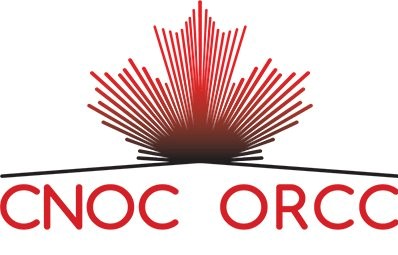
GATINEAU, QC – Competitive Network Operators of Canada (CNOC) filed an application late last month asking the CRTC to review and vary its July 27 decision, announced in Telecom Regulatory Policy CRTC 2021-239, not to mandate access to fibre in-building wire (IBW) in multi-dwelling units (MDUs) across the country.
In the application, CNOC asks the CRTC to “[m]andate wholesale access to fibre IBW for any entity to which the MDU Access Condition, as expanded in TRP 2021-239, applies,” and to “[d]etermine that mandated wholesale access to fibre IBW will be provided pursuant to a single, nationwide wholesale rate, and that this wholesale rate should be established in a follow-up costing proceeding.”
The CRTC had made its decision because it found “access to fibre IBW is not an essential service,” and determined there was not “a valid policy reason” – a reason related to the public good, interconnection or innovation and investment – for it to mandate the service.
CNOC, however, argues there are reasons based on the public good and innovation and investment rationales that indicate the CRTC should have ruled in favour of mandating access to fibre IBW in MDUs.
According to the CRTC’s decision, a public good policy reason would show “a need to mandate the service for reasons of social or consumer welfare, public safety or public convenience.” In its review and vary application, CNOC argued reasons of consumer welfare and public convenience apply.
CNOC noted substantial argument was made on the record showing “mandated wholesale access to fibre IBW would advance consumer welfare and public convenience.” The CRTC, however, “dismissed these extensive arguments in a single, two-sentence paragraph,” CNOC said.
Arguing the definition of welfare “includes economic well-being, which is advanced by competition and consumer choice,” the organization pointed out the CRTC “mandated access to copper IBW through a series of decisions in the 1990s based solely upon its policy of end-user choice.”
“This affirms that end-user choice constitutes a free-standing ground on which a wholesale service can be mandated,” CNOC wrote.
As for public convenience, CNOC argued: “Multiple installations of fibre IBW in an MDU will be highly disruptive to both the owners and occupants of MDUs and may require make-ready work such as the installation of new risers or the modification of existing risers. All of this will generate, noise, dust, and require entry into the units of occupants of the MDU.”
The organization said this inconvenience “is the main reason that the record of the proceeding demonstrated that MDU owners resist multiple fibre IBW installations and deny access to competitors seeking to install fibre IBW.”
While noting companies including Cloudwifi, TekSavvy and Videotron indicated they have “experienced issues related to the installation of fibre IBW,” the CRTC said “there is limited evidence” the obstruction of competitive installation of IBW “represents a significant barrier to installing competitive fibre IBW at this time.”
The Commission further said it has occasionally issued decisions “to resolve such matters when they arise,” and noted that since one such decision was made in 2016 “certain MDU access-related disputes have been resolved through a dispute resolution process without requiring a Commission decision.”
The CRTC as such, stated in TRP 2021-239 it “is of the view that no further regulatory measures are necessary to address MDU access-related issues at this time, given the limited number of occurrences of such issues.”
CNOC argued that while the CRTC does have jurisdiction to intervene when issues arise between building owners and telecommunications service providers (TSPs), “there is no valid policy reason to compel TSPs to resort to an adversarial regulatory process that will unnecessarily tie up resources, poison business relationships between MDU owners and TSPs, and take months if not years to resolve when the Commission could instead just grant mandated wholesale access to fibre IBW.”
CNOC also noted in its review and vary application the CRTC said “competitors can enter into commercial agreements with fibre IBW owners if they wish to access fibre IBW,” but argued the Commission said this “in the complete absence of any evidence to suggest that fibre IBW owners are willing to enter into such agreements.”
As for the innovation and investment policy consideration used for determining valid policy reasons, CNOC said it means the CRTC “should mandate wholesale access to a service if doing so will improve the overall level of investment in advanced or emerging networks and services.”
The CRTC, in its decision, said investment in advanced or emerging networks or services is “likely to continue regardless of whether access to fibre IBW is mandated, given the increasing demand for high-speed Internet services.”
CNOC argued “mandated access to fibre IBW will lower the costs for competitors to deploy their fibre networks in MDUs more broadly.”
Its application goes on to state: “The capital saved through mandated wholesale access to fibre IBW will be redeployed to other network development activities. It is a basic economic fact that lowering the costs of network deployment will stimulate greater investment in fibre networks and thus competition among those networks.”
The deadline to comment on CNOC’s review and vary application is Nov. 25.
For CNOC’s full application, please click here.


